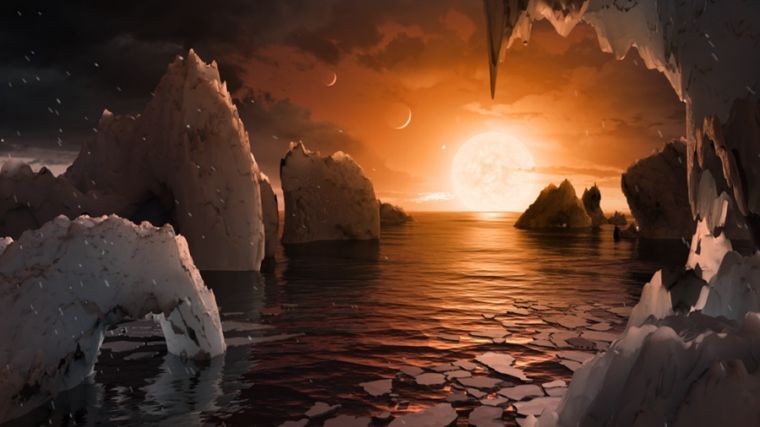Christian Astrophysicist Sees Little Chance Of Alien Life In New Earth-Size Planets Discovered By NASA

Seven new Earths? As in seven new habitable worlds?
That was the tantalizing possibility dangled by NASA this week following the discovery of seven Earth-sized planets orbiting a star.
All the seven planets could have the key to life –liquid water—with the chances of this highest in three of the planets located in the habitable zone, NASA said in a press release.
"This discovery could be a significant piece in the puzzle of finding habitable environments, places that are conducive to life," said Thomas Zurbuchen, associate administrator of NASA's Science Mission Directorate in Washington. "Answering the question 'are we alone' is a top science priority and finding so many planets like these for the first time in the habitable zone is a remarkable step forward toward that goal."
The seven planets were found orbiting the TRAPPIST-1 ultracool dwarf star about 40 light-years, or 235 trillion miles, away from Earth in the constellation Aquarius. These planets are scientifically known as exoplanets because they are located outside of our solar system.
One Christian astrophysicist, however, is not about to shout "Eureka!" with NASA's announcement.
Interviewed by The Christian Post on Thursday, astronomer and best-selling author Dr. Hugh Ross pointed out that the chances of these planets being habitable are small, and that they do not diminish Earth's uniqueness.
"I think that NASA is looking for funding, so I think they are actually hyping it a little more than they should," Ross said.
In an article on his ministry's website, Reasons to Believe, the astrophysicist pointed out the seven so-called Earth-size planets are orbiting an "extremely small star."
"The luminosity of the star is less than a thousandth that of the Sun," he said.
"Ultracool, fast-rotating stars exhibit frequent huge flares that are accompanied by strong x-ray and ultraviolet radiation," Ross said.
Since the exoplanets are orbiting very close to their star, this means they are tidally locked — "one side of the planet will always be facing the star, while the other side will be in perpetual darkness," he explained.
Ross said these are just some of the details that prove how special the Earth is.
"The more planets they discover, and the more we learn about them, the more we recognize how unique our own planetary system is, and its capacity to support life," he said.











